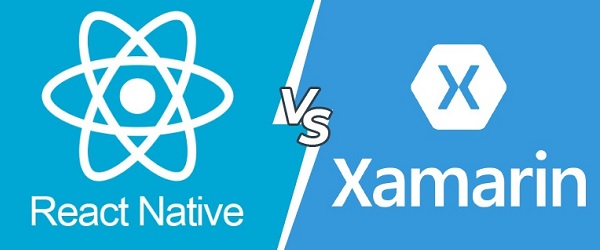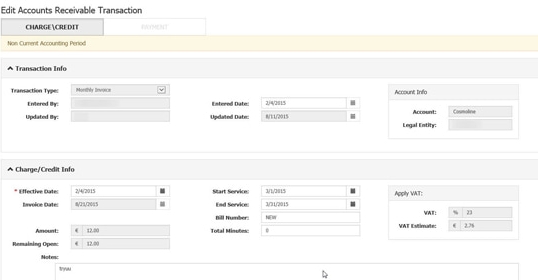Startup companies choose .NET for quick and cost-effective full-stack web and mobile development. Large enterprises select .NET for its ability to scale quickly and reduce delivery time. But the key to achieving these goals is the right people in your team. As the head of a .NET department, I have developed my own criteria and requirements that may serve as a benchmark for .NET developer interview questions helping you find .NET developers that will help our team successfully complete a project of any complexity. Use them too to achieve the expected result in your projects.
When you are looking for a .NET developer, the first thing you expect is to get a quality product on time. However, depending on your project you might have various requirements for .NET developer and need to create a different NET developer job description.
USE CASE 1. If you want to build a .NET web application
Must-have .NET developer requirements in a nutshell
|
Framework |
ASP.NET Core (ASP.NET Core MVC, ASP.NET Core Web API, ASP.NET Core Blazor) |
|
Databases |
MS SQL, MySQL, PostgreSQL, MongoDB, Azure Cosmos DB, SQLite, Redis, etc |
|
Languages |
C# or F#, HTML (HTML5, DHTML), CSS, JavaScript, Extensible Markup Language (XML & XMLT) |
|
Other tools |
SignalR, ASP.NET Core Blazer |
Recommended ASP.NET developer job description and skills needed for building a web app
In case you are preparing .NET Core interview questions for senior developer or revising resume of experienced NET developer with MVC, you can use this ready-to-use compilation of .NET developer roles and responsibilities that are must-haves or nice-to-haves for building a web app.
Back-end Development
- Design and implement database schemas (both SQL and non-relational) to ensure fast and effective data retrieval;
- Develop REST APIs and microservices to scale complex software solutions. Use Docker containers on all major cloud platforms, including Azure;
- Use industry-standard authentication protocols supported by ASP.NET Core, built-in features to protect web apps from cross-site scripting (XSS) and cross-site request forgery (CSRF);
- Apply ASP.NET Core SignalR library to develop real-time web functionality and allow bi-directional communication between server and client. Publish ASP.NET Core SignalR app to Azure App Service and manage it.
Front-end development
- Design ASP.NET Single Page Applications (SPA) with client-side interactions using HTML 5, CSS 3, and JavaScript. Apply templates of Visual Studio for building SPAs using knockout.js and ASP.NET Web API;
- Implement ASP.NET MVC design pattern to build dynamic websites, enabling a clean separation of UI, data, and application logic. As a part of MVC design, use ASP.NET Core Razor to create page- or form-based apps easier and more productive than using controllers and views;
- Apply ASP.NET Core Blazor framework to build interactive client-side web UI on C# and with a shared server-side and client-side app logic
- Write clean, scalable code using .NET programming languages (C#, F#) in combination with JavaScript, HTML5, CSS, JQuery, and AJAX to create fast-performing websites with dynamic web content and interactive User Interfaces;
Cloud Development/Deployment
- Use a cloud-ready ASP.Net application and host configuration, project templates, and CI/CD tools to deploy web apps to the cloud (Azure, AWS, Google, Oracle, etc.).
API and Microservices Development
- Use ASP.NET Web API to build RESTful applications and HTTP services that reach a broad range of clients, including browsers and mobile devices;
- Apply Remote Procedure Call (RPC) in ASP.NET Core to build lightweight microservices, contract-first APIs, or point-to-point real-time services.
USE CASE 2. If you want to build a mobile application
Must-have full stack .NET developer skills in a nutshell
|
Framework |
Xamarin, .NET MAUI (.NET MAUI Blazor) |
|
Databases |
SQLite, MySQL, PostgreSQL, DB2, MongoDB, Redis, Azure Cosmos DB, MariaDB, Cassandra, etc. |
|
Languages |
C# |
|
Other tools |
Xamarin.Forms, Xamarin.Essentials and SkiaSharp libraries, etc; |
Recommended .NET developer job requirements and skills for building a mobile app
Both Xamarin and .NET Multi-platform App UI (MAUI) are .NET frameworks from Microsoft for building cross-platform apps. As a new framework, .NET MAUI is supposed to replace Xamarin. So if you are developing a new application, .NET MAUI is a recommendation, in case you already have some projects in Xamarin, it can be your go-to option.
.NET MAUI Development
- Write clean code using C# and XAML to develop apps that can run on Android, iOS, macOS, and Windows from a single shared code-base in Visual Studio;
- Implement .NET MAUI and Blazor together to build client-side web UI with .NET and C# instead of JavaScript;
- Leverage a collection of .NET MAUI controls to display data, initiate actions, indicate activity, display collections, pick data, and more;
- Apply .NET MAUI cross-platform APIs to initiate browser-based authentication flows, store data securely, check the device's network connectivity state and detect changes, and more;
- Leverage re-usable, rich UI component ecosystem from compatible vendors such as UX Divers, DevExpress, Syncfusion, GrapeCity, Telerik, and others;
- Handle .NET MAUI Single Project functionality for shared resource files, a single cross-platform app entry point, access to platform-specific APIs and tools, while targeting Android, iOS, macOS, and Windows;
- Apply the latest debugging, IntelliSense, and testing features of Visual Studio to write code faster;
- Implement .NET hot reload feature to modify XAML and managed source code while the app is running, then observe the modifications result without rebuilding the app.
Xamarin Development
- Write clean, effective code using C# programming language to create apps for Android, iOS, tvOS, watchOS, macOS, and Windows;
- Implement Xamarin.Forms in-built pages, layouts, and controls to design and build mobile apps from a single API. Subclass controls, layouts, and pages to customize their behavior or define own to make pixel perfect apps;
- Leverage APIs like Touch ID, ARKit, CoreML, and many more to bring design from XCode or create user interfaces with built-in designer for iOS, watchOS, and tvOS;
- Leverage Android APIs, Android support libraries and Google Play services in combination with built-in Android designer to create user interfaces for Android devices;
- Apply .NET Standard to share code across the Android, iOS, Windows, and macOS platforms, as well as between mobile, web, and desktop apps;
- Use Xamarin libraries (Xamarin.Essentials or SkiaSharp) for native APIs and 2D graphics to share code and build cross-platfrom applications.
USE CASE 3. If you want to migrate or build .NET software in the cloud
Must-have .NET developer responsibilities in a nutshell
|
Framework |
.NET/.NET Core, ASP.NET/ASP.NET Core |
|
Cloud providers |
Azure, AWS |
|
Databases |
Any relational or NoSQL databases, including Microsoft SQL Server, Oracle Database, MySQL, IBM DB2, MongoDB, Cassandra, etc. |
|
Other tools |
.NET Upgrade Assistant |
Recommended .NET developer job duties and skills for building an app in the cloud (Azure, AWS)
Making up a list of middle-level or senior .NET developer interview questions or creating .NET Core developer job description, you can rely on the following description to the necessary extent, depending on the selected cloud provider.
Azure Cloud App Development
- Use project templates for debugging, publishing, and CI/CD tools cloud app development, deployment, and monitoring;
- Apply .NET Upgrade Assistant tool to modernize .NET software for the cloud to lower the migration costs and meet the requirements of the selected cloud provider;
- Leverage Azure App Service for ASP.NET websites and WCF services to get auto scaling, patching, CI/CD, advanced performance monitoring, and production debugging snapshots;
- Create (or migrate) a virtual machine, publish web applications to it, create a secure virtual network for VMs, create a CI/CD pipeline, and run applications on virtual machine (VM) instances in a scale set;
- Create local C# function projects in Azure using Visual Studio and then publish these projects to run in a scalable serverless environment in Azure;
- Containerize existing web app using Windows Server Docker containers;
- Run SQL Server in a virtual machine with full control of the database server and the VM. Manage database server administration, operating system administration, backup, recovery, scaling, and availability;
- Handle Azure SQL Database, supervising automated backup, recovery, scaling, and availability;
- Use Docker containers to isolate applications from the rest of the host system, sharing just the kernel, and using resources given to the application.
AWS Cloud App Development
- Perform load balancing of .NET applications on AWS, using tools like Application Load Balancer (ALB), Network Load Balancer (NLB), or Gateway Load Balancer;
- Handle storage solutions on AWS, using a number of purpose-built relational database services, such as Amazon Relational Database Service (Amazon RDS), Amazon Aurora, and Amazon Redshift;
- Implement and configure AWS cloud infrastructure, using major AWS tools (AWS toolkits for Visual Studio Code, Rider, PowerShell, .NET Cli), test tools ( AWS SAM Local and the AWS .NET Mock Lambda Test Tool), CI/CD tools (AWS CloudFormation, AWS CDK), AWS developer tools (AWS CodeCommit, AWS CodeBuild) to make applications development, deployment, and testing fast and effective;
- Deploy and run .NET applications in AWS, using virtual machines (AWS Elastic Beanstalk, VMWare Cloud on AWS, or Amazon Elastic Compute Cloud);
- Apply AWS container services (Amazon Elastic Container Service/Amazon EKS, Amazon Elastic Kubernetes Service/Amazon EKS, or others) for application isolation in terms of security and data access, runtime packaging and seamless deployment, resource management for distributed systems, and more;
- Design modern .NET Core applications that can take advantage of all the cloud benefits, including targeting various types of serverless environment, including AWS Fargate or AWS Lambda;
- Leverage AWS SDKs for .NET to provide native .NET APIs to the AWS Services;
- Apply Porting Assistant for .NET analysis tool by AWS that scans .NET Framework applications and generates a .NET 5 compatibility assessment to prepare apps for the cloud deployment;
- Create Serverless Applications with AWS Lambda to manage container images, including the guest OS and any application dependencies;
- Deploy both microservices and monolithic applications in the AWS Cloud;
- Rehost applications using either AWS Elastic Beanstalk or Amazon EC2 (Amazon Elastic Compute Cloud).
USE CASE 4. If you want to modernize your .NET software to improve performance
Depending on your task and project specifics, the NET full-stack developer skills and NET developer job requirements will differ immensely. Let’s cover the basic and major net developer requirements.
Migrating to .NET Core
- Upgrade technologies incompatible with .NET Core and make sure that all necessary dependencies, such as APIs, work as expected;
- Optimize databases, reducing the use of the stored procedures in DB;
- Migrate both 3rd-party and platform-specific (native) libraries to .NET Core;
- Optimize .NET apps further after migration by performing such tasks as query profiling or using more effective APIs for .NET Core for better performance;
Optimizing existing functionality
- Analyze and resolve technical and application problems and identify opportunities for improvement;
- Optimize databases to minimize the response time of users’ requests;
- Perform targeted refactoring of the legacy code by implementing more modern and efficient approaches to achieve faster app performance;
- Redesign software architecture, for example, separating frontend and backend by creating SPA for each application and REST Web API to increase servers performance;
- Ensure that the development and unit testing is in accordance with established standards.
Still have questions about the .NET developer required skills that your project may require? Or need help from a well-organized and high-performance .NET team with on-hand experience? Just contact me directly.
Recommended posts
Portfolio
Our Clients' Feedback










































Belitsoft has been the driving force behind several of our software development projects within the last few years. This company demonstrates high professionalism in their work approach. They have continuously proved to be ready to go the extra mile. We are very happy with Belitsoft, and in a position to strongly recommend them for software development and support as a most reliable and fully transparent partner focused on long term business relationships.
Global Head of Commercial Development L&D at Technicolor